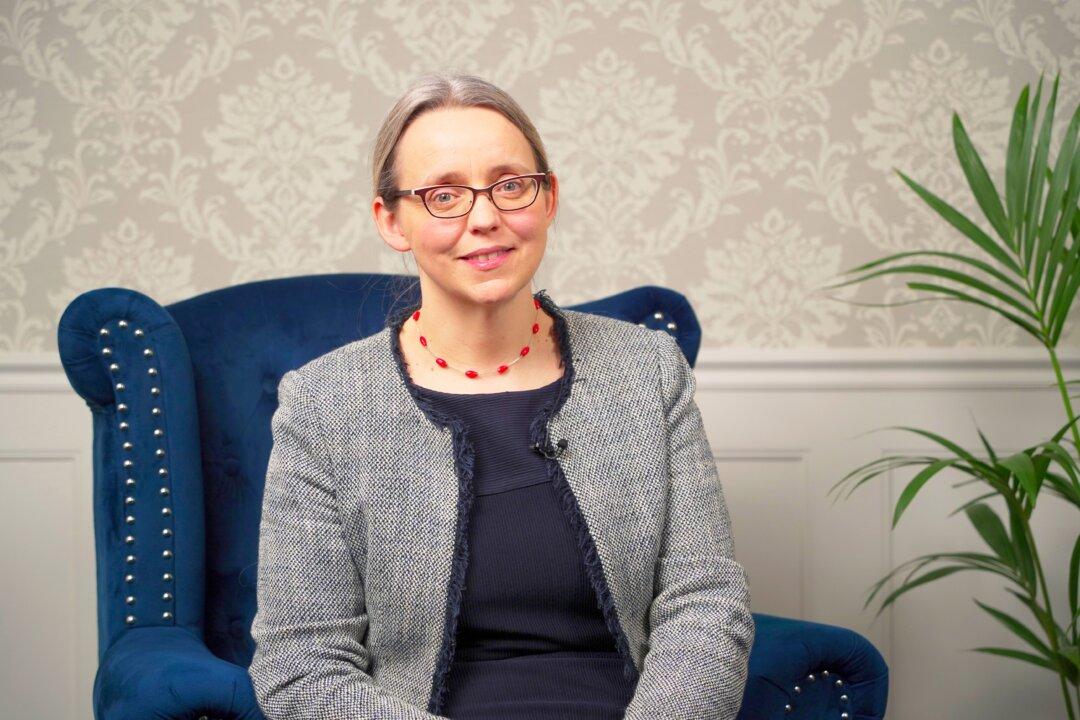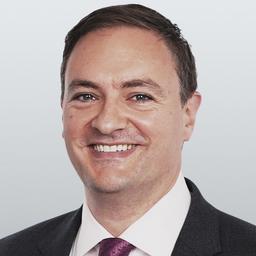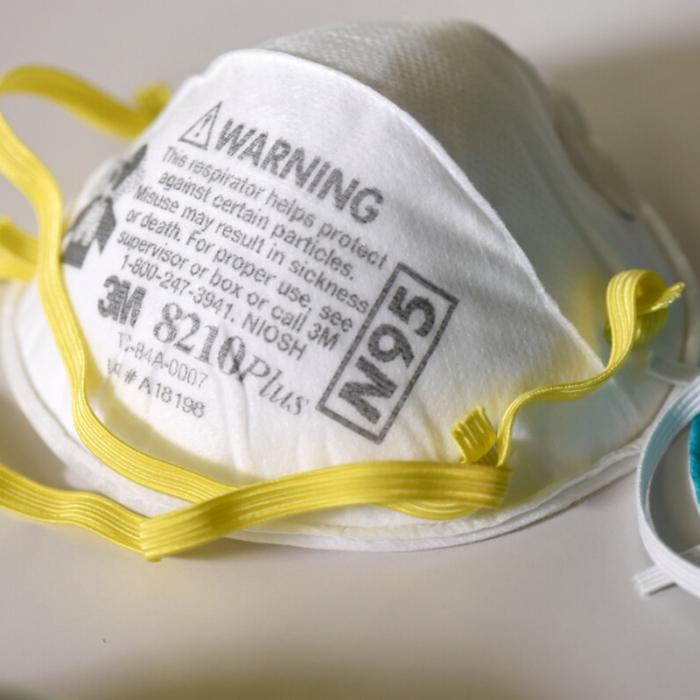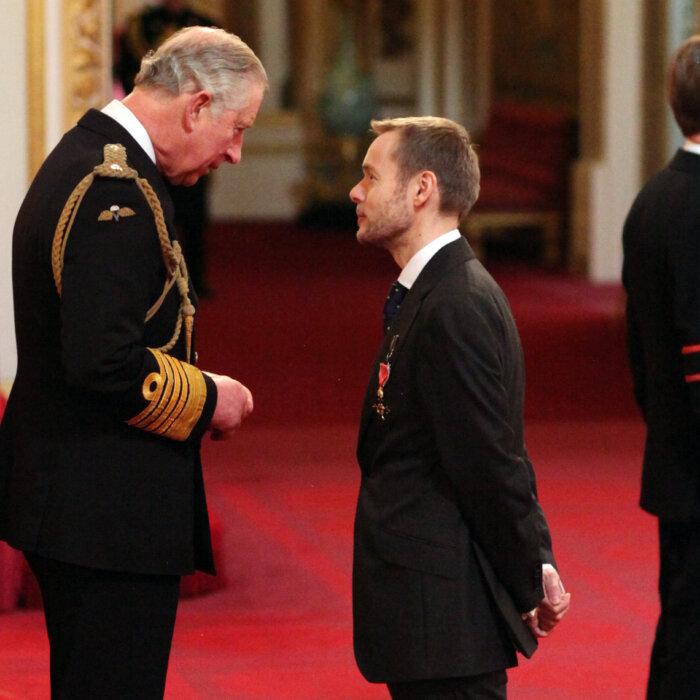There is no scenario in which lockdowns should come back in the future, says Dr. Clare Craig, co-chair of the Health Advisory and Recovery Team (HART), an independent group of researchers examining COVID-19-related policies and studies.
Speaking to NTD’s “British Thought Leaders” programme about her book “Expired: Covid the untold story,” Dr. Craig said people have died because of disruptions to health care during the COVID-19 pandemic.
The diagnostic pathologist argued that the government’s mitigation measures, such as lockdowns, mask mandates/guidance, and social distancing, were not effective in slowing the spread of COVID-19 because they were based on the assumption that the disease was transmitted via droplets while “the majority of the virus is in the aerosols.”
Ineffective in Curbing Aerosol Spread
When the COVID-19 epidemic broke out, physicists had “done tonnes of research about aerosol spread of infectious diseases,” but they were “ignored” by the epidemiology and virology community, says Dr. Craig.As a result, “it took until Dec. 2021 for the WHO [World Health Organization] to finally move from saying that aerosol spread was misinformation, which is what they had been saying, to saying that SARS-COV-2 [the virus that causes COVID-19] spread through long distance aerosol transmission,” she said.
“If you’ve got a virus that’s spreading at night when there’s no UV light, through the wind between apartments, there’s not much you can do about that,” she said.
“And the evidence is that the modelling, which was assuming close contact, droplet spread, would lead to a peak in cases in July 2020. ... Locking down was meant to slow that, which means it should have peaked after July 2020,” she said.
However, the virus “went right through the population really rapidly, peaked and fell almost immediately,” she said.
“And that’s the difference between person-to-person transmission, which takes a long, long time for spread to occur, and spread through the air where people’s interactions are irrelevant to that. It’s just happening.
“And that’s why you see a variant arise almost instantaneously across the country and pretty much across the world, because it’s just in the air.”
For the same reason, masks “weren’t effective at all,” she said.
“The people who are spreading disease are the ones who are sick. And so they’re at home without a mask on, breathing out millions and millions of virus particles into the air, which then spread to the region around where they are. And there’s really nothing you can do about that happening,” she said.
“And then of course, if you’re wearing a mask, you’re going to take it off or put it on. And that means you’re touching it. And that’s a really high risk of exposure when you’re doing that,” she added.
“If the droplet story had been true, they would have made an impact. If the droplet story had been partially true, ... it still should have made some impact,” but “real-world evidence of what happened with mask mandates [show] that there’s no benefit,” she said, referring to studies comparing jurisdictions with and without mask mandates, including “when Austria and Germany use the n95 masks, which are designed to filter out aerosols.”
Won’t Work in Any Scenario
Dr. Craig said she believes the restrictive measures that many countries have adopted not only didn’t save lives, but have killed people.“There were plenty of people who, when they were being repeatedly told to stay home and protect the NHS, did just that. And so when they actually needed health care, they didn’t turn up and you can see it in the data.”
Dr. Craig said she sees no benefit in removing people’s freedom during epidemics or pandemics.
For diseases with a high mortality rate and are not transmitted by air, such as Ebola, “you quarantine the sick, you don’t need to lock down the healthy,” she said.
For airborne viruses such as SARS-COV-2, “it doesn’t actually matter how deadly that virus is if you can’t do anything about it,” she said.
“The logic is not around, ‘Oh but it’s scary.’ If interventions aren’t working, you don’t do them regardless because it’s pointless.”
Between the two scenarios, there are diseases in the gastroenteritis category, that are spread through the faecal oral route and aren’t as dangerous as Ebola, Dr. Craig said figures show people were still catching them during COVID-19 lockdowns, and that lockdowns will only slow down and prolong the spread, and can’t stop it.
“The people who showed up to hospital with gastroenteritis, their levels halved” during the COVID-19 lockdowns, she said.
“And given the levels of general attendance halved too, maybe nothing changed. But let’s assume it did actually halve, all you would be doing by locking down is slowing the spread.”
First Do No Harm
The doctor said the interventionist policy is a “real perversion” of the precautionary principle that are drummed into medical students, who “tend not to be cautious enough” because they are eager to help.“So we have the foundational ethical principle in medicine of ‘first do no harm.’ And the reason that’s reiterated so much is that any medical student, or even junior doctor, they always end up too eager to do stuff because they want to help,” she said.
“And as you get more and more senior, you become more and more willing to wait, watch, to see what’s gonna happen before stepping in, because you realise that every time you intervene, you are risking harm.”
While there are times interventions are “absolutely” needed, “there’s often nothing wrong with just being careful about [it] when you do that, and so that’s why it’s drummed into us first ... through our medical training.”
What essentially happened during the COVID-19 pandemic is that “the reins were handed to politicians who were behaving like medical students,” who were “really excited about doing something without anyone senior to them telling them to be cautious,” Dr. Craig said, adding that the precautionary principle of not intervening unless you are fairly sure the intervention will help and won’t do harm was “not only disregarded,” but “also turned on its head and used to make the opposite claims to say things like, ‘Well, if we don’t mask, there might be harm, so we really ought to do that.”








